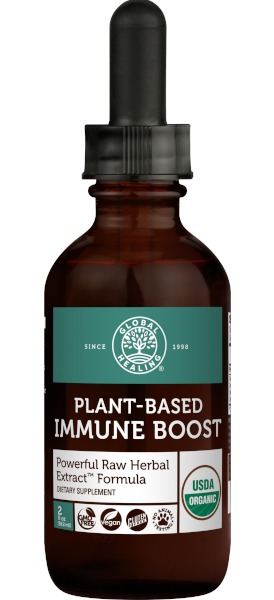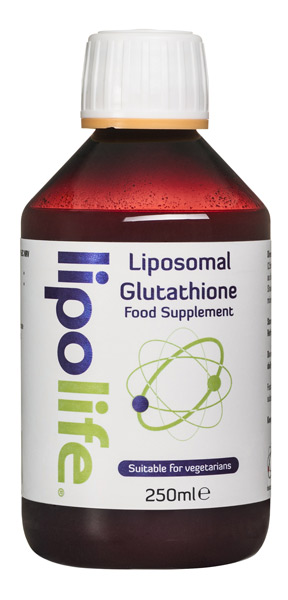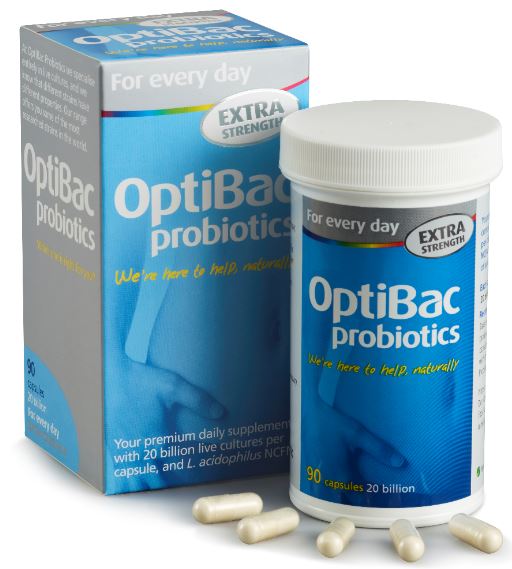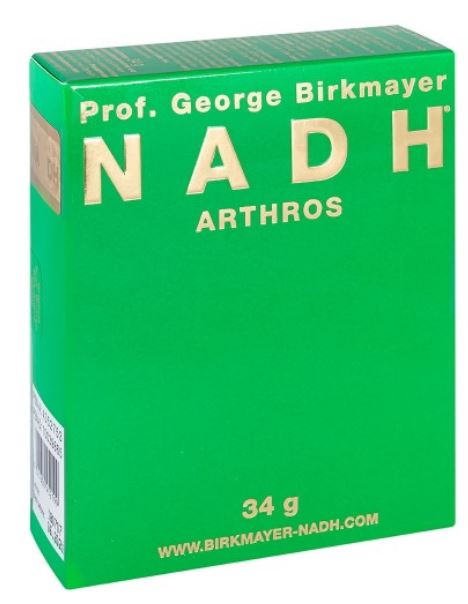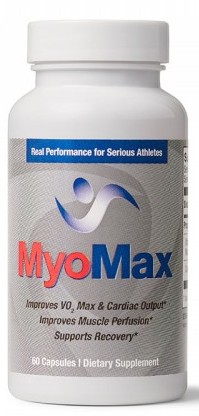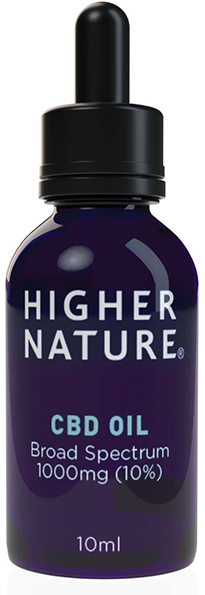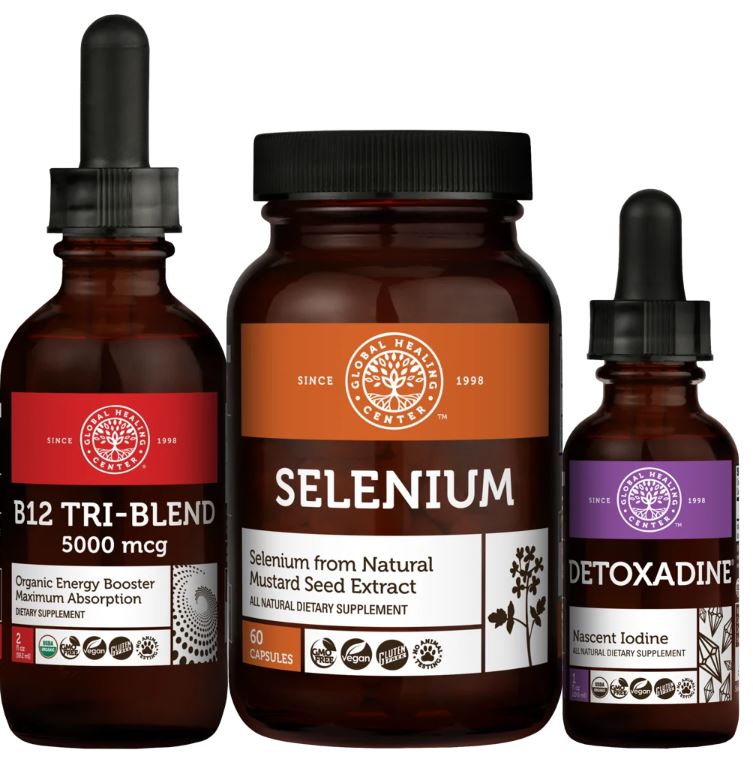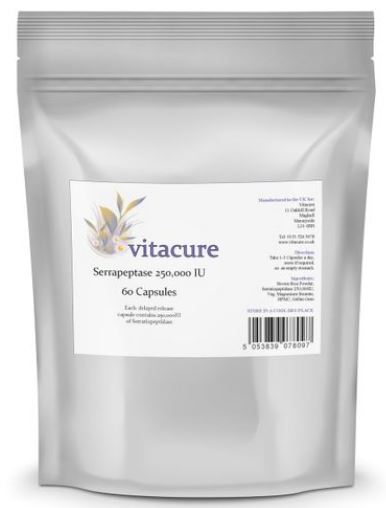The idea of something primarily made of sulphur may sound unlikely to help your body’s health (you’d maybe assume it would do quite the opposite), but don’t be put off. Because methylsulfonylmethane (or, rather, MSM, as it’s better known) may just prove to do your body a good deal of good; especially if consumed in the form of a properly organically-sourced supplement.
A natural sulphur compound that occurs in all living things, MSM is, in actual fact, the fourth most commonly found mineral in the human body. In which case, it plays an important role in the body’s general health and effective functioning. And it’s precisely because of this that boosting your levels of MSM is highly advised and, in the form of a dietary supplement, it’s fast become a popular way to help treat a swathe of various symptoms and conditions.
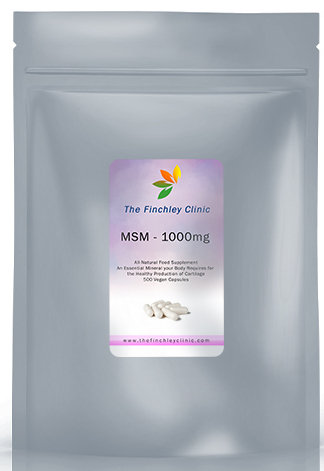
Indeed, this leads us on to some particularly good news, for – here at The Finchley Clinic – we can announce we’re now overseeing the production of a high-quality, fully organically-sourced MSM supplement on our own terms, which means we can sell it to our customers at a good, competitive price. You’ll find that our Finchley Clinic brand of MSM is still ‘Opti-MSM’ (the type of MSM we previously sold), as it’s manufactured in the same factory as the latter – the brand we reluctantly had to replace as it was no longer competitive enough for us to sell. All told, though, this is a new arrangement that, hopefully, should work out very well for both us and our customers.
So, then, just why is MSM so highly prized by the human body – what can it do…?
Positively affects joint health; reduces joint pain
Joint degeneration, which often causes pain in different areas of the body (knees, hips, hands and the back) can also limit mobility and movement. According to the results of different studies, MSM appears to help reduce cartilage breakdown (cartilage being a flexible tissue that protects bones in joints), while it could also reduce swelling and stiffness in joints and the pain associated with that.
Possesses anti-inflammatory properties
It’s MSM’s ability to act as both a chemical inhibitor and enabler that means it’s effective in the anti-inflammatory stakes. First off, it appears that it can inhibit the protein complex NF-kB, which otherwise would aid inflammatory responses in the body, while also help inhibit production of specific cytokines linked to systemic inflammation. Secondly, MSM can help boost glutathione levels in the body – glutathione is a powerful antioxidant – and help reduce arthritis-related symptoms (arthritis being an inflammatory condition that affects the body’s joints), such as pain and stiffness, and thereby aiding physical function and mobility.
May increase immunity
There are strong signs that MSM, in combination with improved sleep, physical exercise, diet and all-round healthier living, may be able to strengthen the body’s immune system and its work in the face of potential illness. To start with, given that MSM is primarily made up of sulphur, it can naturally contribute to improving the immune system and immunity.
An example being that, thanks to its antioxidant properties, MSM may be able to reduce oxidative stress – and, therefore, inflammation and reduced immunity, too – by helping rid the body of inflammation-causing compounds including IL-6 and TNF-ɑ.
Moreover, MSM’s aforementioned ability to bolster glutathione levels comes into play here, because the higher the levels of glutathione in the body, the better overall health and immune system function tends to be.
Could boost hair and skin health
Ever wondered why, when hair burns, it gives off such a unique smell? That aroma is sulphurous in nature and occurs because keratin – the key structural component of human hair – is a protein that’s particularly rich in the amino acid cysteine, which is packed full of sulphur. And, yes, it’s that sulphur commonality that ensures MSM may improve the health of your hair; essentially because it’s capable of behaving as a sulphur donor to keratin.
Additionally, owing to its anti-inflammatory capabilities (see above), it’s also believed that MSM may aid in repairing damaged skin cells and, thus, preventing the forming of premature skin-aging (i.e. wrinkles) and perhaps combat skin conditions like rosacea, which can lead to redness, irritation and inflammation of human skin.
Whichever way you slice it, then, whether it’s due to its anti-inflammatory properties, antioxidant abilities or natural sulphuric content (or, indeed, all three combined), MSM may prove very beneficial for maintaining or boosting the health and effectiveness of many parts of your body. It’s for these reasons we definitely recommend you giving our new version of it a try – and see yourself what good it may do you!

